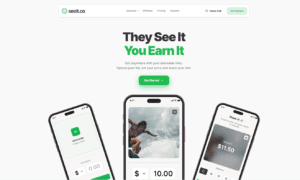The Monetization Question
Public records are meant to be free, open, and searchable. Reality is trickier. The data may be legally accessible, yet the interfaces are confusing, the formats are inconsistent, and the infrastructure needed to make anything reliably usable is expensive. Unclaimed property illustrates the tension. Roughly sixty-eight billion dollars sit in public datasets that are technically available but practically out of reach for most people without heavy processing, normalization, and intelligent search. The ethical question is not whether to charge for government data. It is how to build sustainable businesses around the value-added layer while keeping the underlying records open to everyone. Sustainable here means covering the costs of aggregation, cleaning, enrichment, uptime, support, and continuous improvement without putting a toll on the door of public information. That is a business model challenge and an ethical framework challenge at once: create value that citizens willingly pay for while protecting universal access and privacy.
The Value Creation Stack
Layer 1: Raw Data (No Monetization)
The base layer is the public record itself. These files and feeds exist to serve the public interest and should remain free or very low-cost. On their own, they are messy, fragmented, and often unusable for ordinary residents. This layer should never be monetized.
Layer 2: Data Processing (Infrastructure Cost Recovery)
Real value begins when platforms ingest exports from more than fifty jurisdictions, normalize clashing schemas, clean and validate records, and synchronize changes in near real time. This work absorbs compute, storage, and network resources that can run from fifty thousand to well over five hundred thousand dollars per year. Charging for this layer is about cost recovery, not rent seeking.
Layer 3: AI and ML Enhancement (Value Added Services)
Machine learning pushes usefulness higher. Fuzzy matching closes gaps created by typos and married names. Semantic search understands intent, not just strings. Predictive analytics surface likely matches. Personalization remembers prior attempts and tunes ranking. This is the first defensible point for monetization because the service adds a clear new capability rather than reselling public data.
Layer 4: User Experience (Premium Features)
Design is a feature in civic tech. Mobile apps that remember searches, automated notifications when new matches appear, claim assistance that organizes documents, and priority processing for complex cases all save time. Premium tiers can bundle these conveniences for power users, while a strong free tier remains available.
Layer 5: B2B Services (Enterprise Monetization)
Institutions value scale. Banks, insurers, employers, and law firms need bulk search, audit trails, and programmatic APIs. States may want white label portals. Researchers may need analytics that reveal trends without exposing personal data. Enterprise features justify subscription or contract pricing because they deliver operational leverage.
Ethical Monetization Principles
Basic search must stay free. The underlying public data can never sit behind a paywall. Premium features must deliver genuine utility, not artificial gates. User data is not a commodity: no selling of search histories, no quiet tracking beyond what operations require, and transparent pricing that a non-expert can understand. A freemium model works when the free product serves most people well and paid tiers save time for those with complex needs.
Market Economics and Unit Economics
Cost Structure
Operating a serious platform is not cheap. Hosting, API calls, and storage often run ten to fifty thousand dollars per month. An engineering team capable of building and maintaining ingestion, matching, security, and uptime will cost two hundred thousand to a million dollars a year, depending on scope. Data acquisition and scraping can add twenty to one hundred thousand dollars monthly. In competitive markets, customer acquisition can reach fifty to two hundred dollars per user. Support, documentation, and compliance add thirty to one hundred fifty thousand dollars annually.
Revenue Models
Healthy mixes include enterprise API subscriptions in the five hundred to five thousand dollars per month range, consumer premium plans at ten to fifty dollars per month, claim assistance fees in the ten to twenty percent band where allowed, affiliate partnerships that share five to fifteen percent with recovery firms, and limited data licensing for de identified aggregates at ten to one hundred thousand dollars per agreement.
Unit Economics Example
Average lifetime value per consumer is between fifteen and thirty dollars. If acquisition costs run from fifty to two hundred dollars, consumer revenue alone is not enough, so viral or organic growth is essential, and B2B lines carry the margin. Break-even windows of twelve to twenty-four months are standard, with forty to sixty percent gross margins at scale once caching, batch processing, and more intelligent infrastructure cut per search costs.
Building sustainable businesses around public data requires a careful balance. Platforms like Claim Notify show it is possible to offer free comprehensive searches to millions while monetizing premium features and B2B services, proving that ethical monetization can support both sustainability and civic mission without restricting access to the records themselves.
Market Sizing
The total addressable market tracks the sixty-eight billion dollars in unclaimed assets. The serviceable market is every American willing to search online across a lifetime of moves and name changes. With efficient operations and strong conversion, annual revenue could reach into the billions across the ecosystem. Today, the market is underdeveloped and primed for growth as better tools normalize and enrich the data.
Ethical Frameworks and Best Practices
Access Principles
Never paywall the basics. Keep the free tier genuinely helpful with unlimited searches, parity between mobile and desktop, and accessible interfaces. Provide accommodations for low-income users so premium help never becomes a prerequisite for results.
Privacy Principles
Refuse data brokerage. Store the minimum necessary data, encrypt in transit and at rest, and offer clear opt-out and deletion paths. Adhere to GDPR and CCPA-style rights regardless of jurisdiction, and keep third-party trackers off core flows.
Transparency Principles
Explain the business model in plain language. Publish upfront pricing, list what premium features provide, and be honest about limitations, freshness windows, and sources. Show users where a result came from and how confidence was computed.
Competition Principles
Do not lobby against government improvements. Support open data standards and contribute tooling that helps agencies publish better. Acknowledge that private platforms are gap fillers, not replacements for public capability, and advocate for APIs that make everyone better.
Sustainable Civic Tech
Volunteers and small nonprofits cannot shoulder the continuous costs of ingestion, enrichment, and reliability at a national scale. Ethical monetization is what keeps lights on, engineers paid, and services fast. The point is not whether to charge anything, but how to charge without restricting rights or privacy. ClaimNotify demonstrates a workable pattern: keep core search open, charge for time-saving features and enterprise integrations, and align incentives with citizen outcomes. The next wave of founders should adopt similar guardrails, measure success by recovered assets and satisfied users, and build companies that make public data meaningfully public while standing on sustainable business foundations.



































